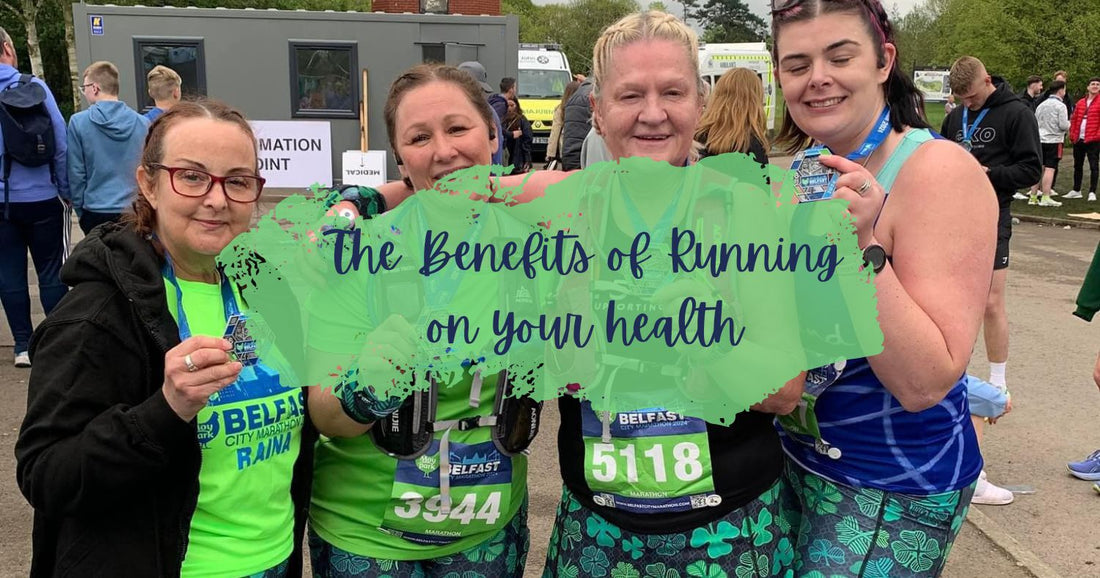
The benefits of running on your mental and physical health
Running is one of the most popular and accessible forms of exercise, offering numerous health benefits for individuals of all ages and fitness levels.
Physical Health Benefits
Cardiovascular Health
Running significantly improves cardiovascular health. Regular running helps to strengthen the heart, increase blood circulation, and lower blood pressure. Studies have shown that runners have a 30% lower risk of cardiovascular disease compared to non-runners. This exercise helps to increase HDL (good) cholesterol levels while reducing LDL (bad) cholesterol, thus improving overall heart health.
Weight Management
Running is an effective way to manage and reduce weight. It burns a significant number of calories, which can help create the caloric deficit needed for weight loss. Additionally, running boosts metabolism and promotes fat burning even after the exercise session has ended, known as the afterburn effect.
Bone and Joint Health
Contrary to the belief that running is harmful to the knees and joints, moderate running can actually strengthen bones and joints. Running increases bone density, reducing the risk of osteoporosis and fractures. However, it is crucial to run with proper form and footwear to prevent injuries.
Immune System Boost
Regular running can enhance the immune system, making the body more effective at warding off infections. Moderate-intensity running stimulates the production of white blood cells and other immune system components, contributing to better overall health.
Mental Health Benefits
Stress Relief
Running is an excellent way to alleviate stress. The physical activity triggers the release of endorphins, often referred to as "runner's high," which are natural mood lifters. Running also helps reduce the levels of cortisol, a stress hormone, leading to a more relaxed state.
Improved Mood and Anxiety Reduction
Running has been linked to reduced symptoms of depression and anxiety. The consistent, rhythmic nature of running can have a meditative effect, helping to clear the mind and improve mood. Some studies suggest that running can be as effective as antidepressants for some individuals.
Cognitive Function
Running can enhance cognitive function and protect against age-related cognitive decline. Physical activity increases blood flow to the brain, promoting the growth of new neurons and improving brain function. Regular runners often experience better memory, focus, and executive function compared to sedentary individuals.
Social and Lifestyle Benefits
Enhanced Sleep Quality
People who run regularly often enjoy better sleep quality. Running helps to regulate the sleep-wake cycle and improve sleep patterns, leading to deeper and more restful sleep. This, in turn, enhances overall health and well-being.
Social Connections
Running can also foster social connections. Many people join running clubs or participate in group runs, which provide a sense of community and shared purpose. These social interactions can lead to increased motivation and enjoyment of the activity.
Discipline and Goal Setting
Regular running requires discipline and commitment, which can translate into other areas of life. Setting and achieving running goals, such as completing a race, can boost confidence and encourage a goal-oriented mindset.
Practical Considerations
Starting Safely
For beginners, it is important to start slowly and gradually increase intensity to prevent injuries. Incorporating rest days and cross-training can help maintain balance and prevent overuse injuries.
Proper Equipment
Investing in a good pair of running shoes is crucial to avoid discomfort and injury. Shoes should provide adequate support and cushioning based on individual foot type and running style.
Conclusion
Running offers a wide array of health benefits, from improving cardiovascular health and managing weight to boosting mental well-being and enhancing social connections. By incorporating running into a regular exercise routine, individuals can enjoy a healthier, more balanced lifestyle. As with any exercise regimen, it is essential to start gradually, use proper equipment, and listen to one's body to maximise benefits and minimise risks.




